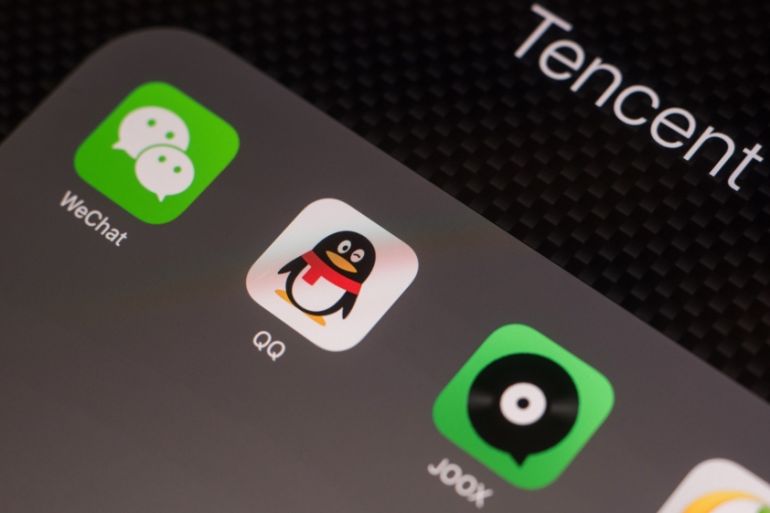Tencent Music’s revenues find their groove with more paying users
But stiff competition in the social entertainment sector led to a slower-than-expected increase in users.

China‘s Tencent Music Entertainment Group, the biggest music streaming and entertainment app in the country, reported better-than-expected third-quarter revenue on Monday, as the company added more paying users.
However, the music streaming company – controlled by Chinese tech giant Tencent Holdings Ltd – recorded the slowest rise in a widely watched metric for its biggest business, social entertainment services, which executives attributed to growing competition.
Keep reading
list of 3 itemsAlibaba pays NetEase $2bn for luxury e-commerce site Kaola
Spotify Lite targets slower phones in emerging markets
Tencent Music, whose Chinese parent company owns popular social networking app WeChat, saw its New York-listed shares rise as much as two percent before trading down about one percent in volatile extended trade.
“We recognise that [revenue] may be slightly below where we previously thought it would be,” Tony Yip, chief strategy officer, said on a conference call. “That’s primarily because of increasing competition that we are facing with the short video platforms.”
The company’s monthly average revenue per paying user from its social entertainment services unit rose 7.4 percent to 127.3 yuan ($18.20), the slowest growth since it went public in December.
In China, Tencent Music competes with Alibaba-backed NetEase Cloud Music in streaming services, and with short video sites such as Bytedance’s Douyin and Kuaishou, which is also backed by Tencent, in social entertainment.
Although its music streaming unit QQ Music has more users, the company’s biggest revenue drivers are social entertainment services, including karaoke platform ‘WeSing’, as well as ‘Kugou Live’ and ‘Kuwo Live’, where users can livestream concerts and shows.
The social entertainment business reported 12.2 million paying users during the quarter, up 23.2 percent from a year earlier.
Yip said the firm will step up investment aimed at user growth, with a view to reach a younger demographic with content more appealing to them as well as initiatives such as offline singing competitions and partnerships with game studios.
The company also said it is exploring opportunities to take services outside China and hopes to introduce monetisation methods such as virtual gifts to Thailand, Indonesia and Malaysia.
Although Tencent Music’s user base of 900 million people is nearly three times that of global music streaming giant Spotify – a peer and stakeholder – its paying users are comparatively fewer.
As of the third quarter, Stockholm-based Spotify Technology SA had more than 100 million paid subscribers, whereas Tencent Music had about 35 million.
This means that Spotify’s revenue, which totalled almost $2bn in the third quarter, far outstripped Tencent Music’s $930m.
For the quarter, Tencent Music’s revenue grew by 31 percent, beating analyst estimates according to IBES data from Refinitiv.
The company said paid users of its online music service jumped by about 42 percent in the July-September quarter.
It has been shifting more content behind a paywall since May.
Tencent Music’s net income rose to 1.02 billion yuan ($150m), in the quarter ended September 30 from 964 million yuan ($138m), a year earlier.